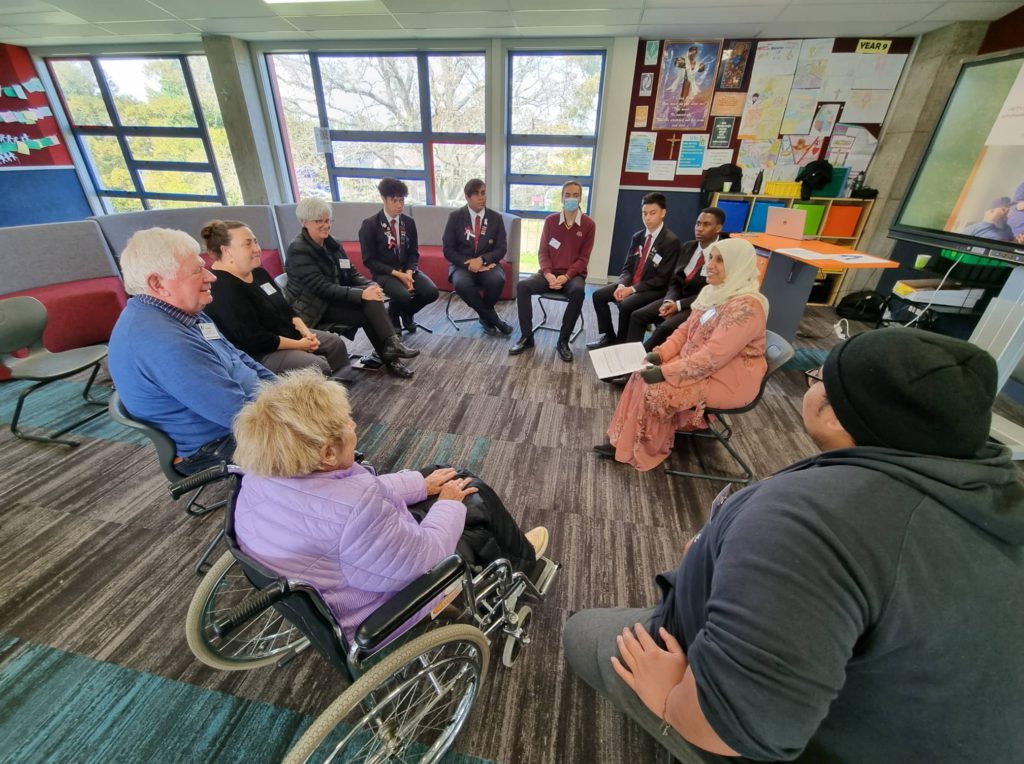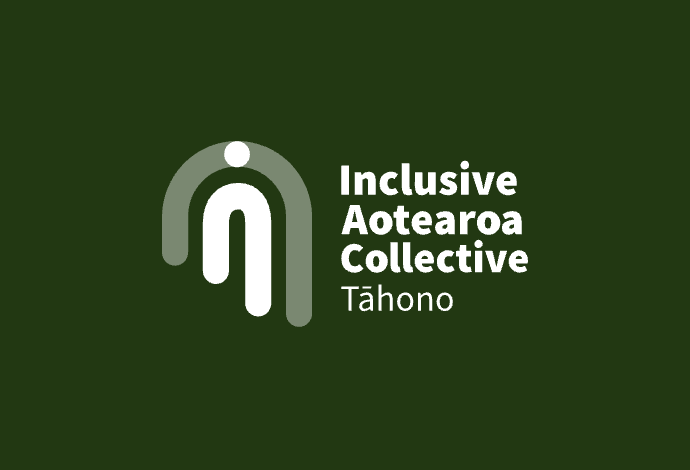Five years of Inclusive Aotearoa Collective Tāhono

Today marks five years of inclusion and belonging, with our project celebrating it’s fifth anniversary.
In this blog post, our project’s founder, Anjum Rahman, reflects on our journey so far, and looks towards the future of belonging in Aotearoa.
People are excluded in various ways. Experiences of exclusion can have various impacts, from emotional harm to loss of resources, from opportunities denied to the ultimate price: the loss of life.
Inclusive Aotearoa Collective Tāhono was conceived in a period of collective grief, not just for us in Aotearoa, New Zealand, but globally. A day of tragedy had the effect of the greatest expressions of solidarity and coming together that the country had seen in a long time. In the aftermath of the Christchurch mosques attacks, people gathered across the country to share emotions and come together in defiance of the harm done in our country.
During that year, Tāhono took shape with the support of many in the community who reached out to offer help. So many in the community wanted to be involved in something that would bring people together. We continue to be grateful to all those, too many to be named, who help with big things like supporting funding applications and producing a literature review, to smaller things like graphic design and helpful advice.
In 2020, we entered another period of strong cohesion as the country experienced its first Covid lockdown. It was a time of anxiety, of a new reality. During those early days, people pulled together and connected with their neighbours. In some ways, we had a brief period when an alternative way of organising ourselves was possible.
It was during this tumultuous year that Tāhono travelled across the country, meeting with people in small groups to talk about their experiences of belonging. Through this process, we received the taonga of people’s experiences of belonging and not belonging. The different ways exclusion was happening in our communities was startling and heartbreaking, but we were also inspired by how people worked in different ways to combat exclusion.
Even as we had come together during Covid, the Chinese community (and those who were perceived to be Chinese) came under attack. Some were dealing with ongoing issues of racism and other forms of discrimination. The stories came from last month or years in the past, and each one deserved to be heard.
International events were impacting our sense of belonging. The Black Lives Matter movement put a spotlight on specific acts of harm that resulted in death, and communities across the world took a stand against racism.
As work on Covid vaccines progressed, divisions became stronger. Conspiracy theories and disinformation began to spread at alarming rates, fuelled by online recommender algorithms and exploitation of online spaces.
In 2021, Tāhono published its research on belonging and began work on community development. Our team worked on pulling out some themes from our belonging conversations and reaching out to communities to build groups focused on building inclusion in some focused areas. It was difficult work for us, as we were finding our feet. By the end of the year, we had established two main networks, supported the development of an ethnic mental health network and connected to media organisations.
As we entered 2022, the anti-vaccine protests outside parliament were a physical manifestation of the divisions that had been increasing online and across the country. During this time, Tāhono continued to build its existing networks and take on other work, including the Ethnic Youth Voices project, the Community Voices webinar series, and the first retreat for our SASS group—women leaders working on systems change.
This was also the year we developed the Bridging Cultures project, seeking to bring together Pasifika and ethnic minority communities on marae, with a te ao Māori worldview informing our discussions on how to combat racism.
The country seemed to be more divided than ever, with opposition to Māori aspirations and increasingly strident transphobic campaigns. We supported the Rainbow community in Tauranga with the burning down of the Rainbow Youth Centre. Changes to the ownership of online platforms led to a rise in hostility and the removal of trust and safety teams across several platforms. While some of this work was automated, there is no doubt that hate flourishes and spreads more quickly through online spaces.
As we entered 2023, we continued working with existing constellations and started building a coalition to address online harm. We also rolled out our Bridging Cultures programmes to communities. There were many new connections and engagements as we continued to work for an Aotearoa where everyone has a place to belong.
As we reach 5 years of working in this space, it’s good to take stock of where we are. That sense of belonging is both better and worse. There continue to be serious threats to cohesion, with economic uncertainty and the rollback of initiatives that would impact structural inequity. International conflicts are having local repercussions, with a rise in both Islamophobia and anti-Semitism.
Yet, at the same time, we continue to be heartened by the people in communities who reach out, work together and show solid commitment to each other. We are heartened by the coming together of many Māori and non-Māori at various hui across the country. We see the support for our mahi, and the mahi of many organisations working in this space. There is resistance, strong advocacy, joy, and people motivated to push for change.
As we look into the future, we know there is still so much more work to be done. There are still too many people who are feeling excluded in different ways. Our team is focused on having impacts through community development and hosting events where people can have deep and difficult conversations and where they can plan and take action. In whatever way we can support people, with the resources we have available, we will be there.
Anjum Rahman
Project Founder
Inclusive Aotearoa Collective Tāhono

